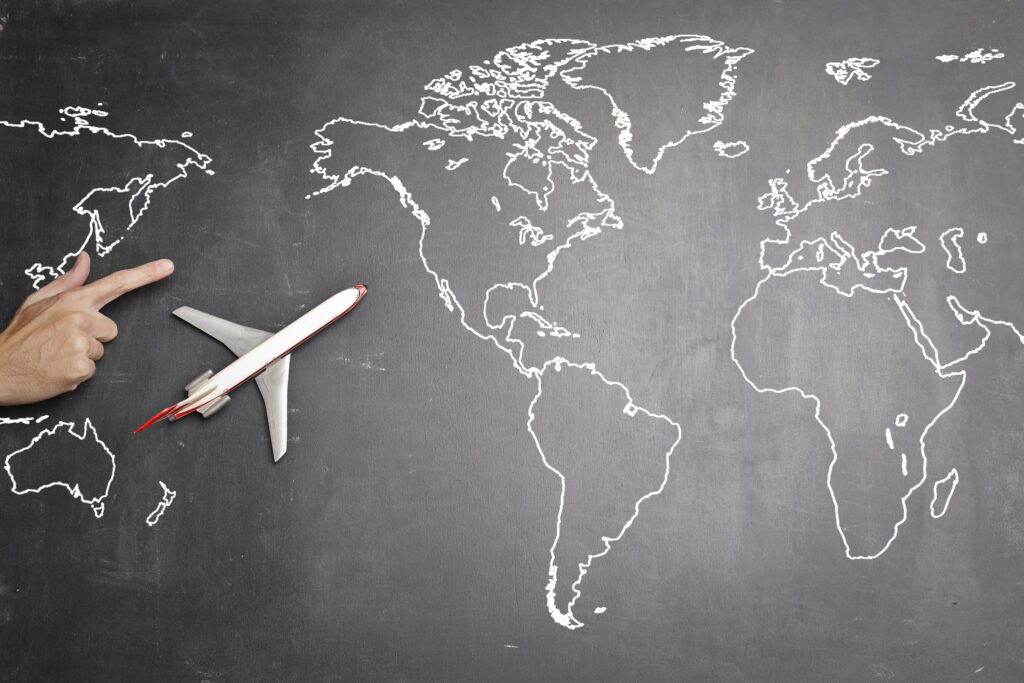
Introduction
Studying abroad opens doors to quality education, global exposure, and long-term career opportunities. However, many students and parents are unsure where to begin. This guide breaks down the study abroad process based on your current academic level—whether you’re coming from Intermediate, O/A Levels, or after completing a Bachelor’s degree.
1. Identify Your Academic Level and Eligibility
After Matric (Grade 10)
- Few countries accept students after Matric.
- You may need to complete a foundation year or high school diploma abroad.
- Ideal for language courses or diploma-level technical training.
After Intermediate (FSc/FA/ICom) or A-Levels
- Eligible for direct admission into Bachelor’s degree programs abroad.
- Common fields include Medicine, Business, Engineering, IT, Arts, and Social Sciences.
- English proficiency (IELTS/TOEFL) may be required, depending on the destination.
After Bachelor’s Degree (14 or 16 Years of Education)
- Eligible for Master’s programs (MS/MSc/MA, MBA, etc.).
- Strong profiles with relevant academic background and good English scores are preferred.
- Many countries offer post-study work permits and permanent residency options after a Master’s degree.
2. Choose the Right Country
Selecting the right destination depends on various factors, including your budget, preferred course, long-term goals, and visa success rate.
Popular Destinations Include:
- Affordable Education and Part-Time Jobs: Romania, Poland, Turkey, Hungary, Lithuania
- Top-Ranked Universities and PR Opportunities: Canada, Australia, Germany, Ireland, UK
- Medical Studies (MBBS, Dentistry, Pharmacy): China, Belarus, Russia, Romania
- Language-to-Work Pathways: Germany, France, Romania, Portugal
3. Understand the Admission Requirements
Each country and university may have specific criteria. However, the following are usually required:
- Academic transcripts (attested)
- English language proficiency (IELTS, TOEFL, Duolingo)
- Statement of Purpose (SOP) or Motivation Letter
- Recommendation letters
- Valid passport
- CV or resume
- Work experience (for Master’s, if required)
Edworkers can help you assess your eligibility and recommend suitable programs.
4. Prepare and Organize Documents
Before applying, gather all necessary documents:
- Educational certificates (matric to latest)
- English proficiency test results
- Valid passport
- Medical certificates (for some countries)
- Police clearance certificate (if required)
- Bank statement or financial proof
- Photos (as per visa and application requirements)
Make sure to notarize and translate documents if required by your target country.
5. Apply for Admission
- Shortlist 3–5 universities that match your profile and goals.
- Submit applications well before deadlines.
- Some universities charge application fees; others may waive it.
Through Edworkers, your chances of admission improve with professionally managed documents and follow-ups.
6. Apply for the Student Visa
Once you receive your admission letter, begin the visa process:
- Complete the visa application form
- Pay the visa fee
- Schedule an embassy or consulate appointment
- Submit all required documents
- Attend interview (if applicable)
Visa success rates are generally higher when your documents are accurate and professionally prepared.
7. Plan Travel and Settlement
- Book your flight after visa approval
- Arrange accommodation (university dorm, hostel, private housing)
- Pack academic and personal essentials
- Learn basic phrases in the local language if applicable
- Carry your admission letter, passport, insurance, and travel documents
8. After Arrival Support
Once abroad:
- Complete university registration
- Apply for student residence permit (if required)
- Open a bank account
- Get a local SIM card
- Explore part-time job opportunities allowed under your visa
Edworkers also provides post-arrival support in selected countries through our partner offices.
Final Thoughts
Studying abroad is not just about getting a degree—it’s about building a future. Whether you’re applying after Intermediate, A-Levels, or graduation, careful planning and professional support can make the entire process smoother, faster, and more successful.
Need personalized advice? Contact Edworkers for a free consultation.
Contact Information
Edworkers Consultant
Pakistan: +92-334-2202222 | +92-335-2202222
Offices in Lahore | Islamabad | Dubai
Website: https://edworkers.com/

